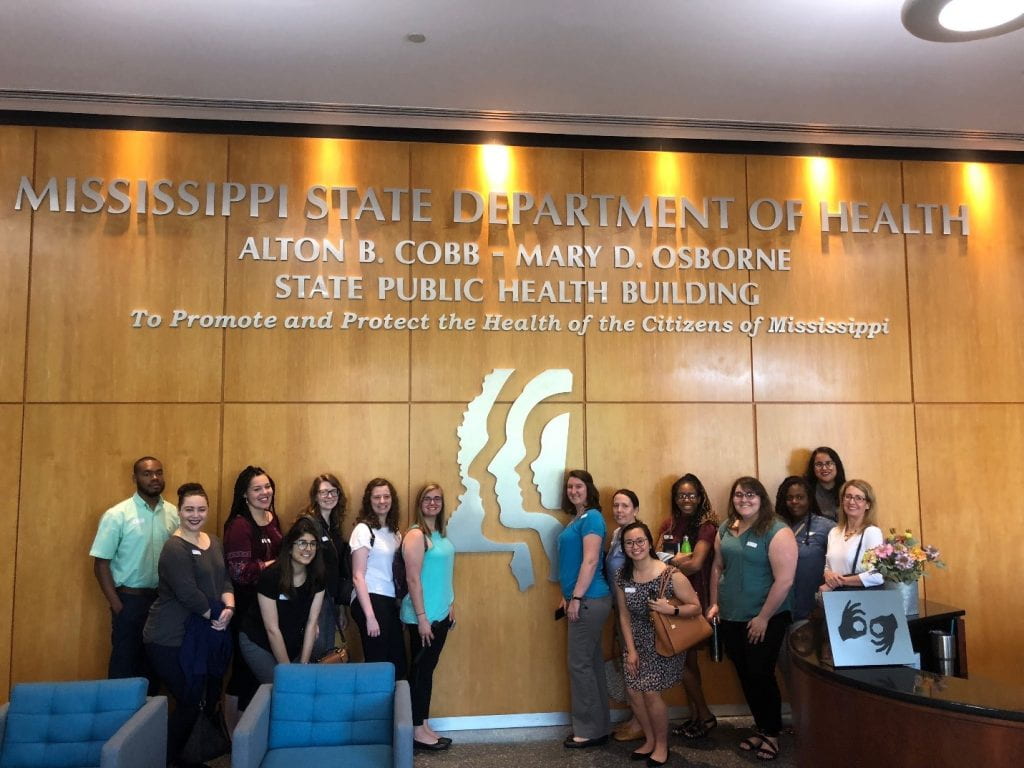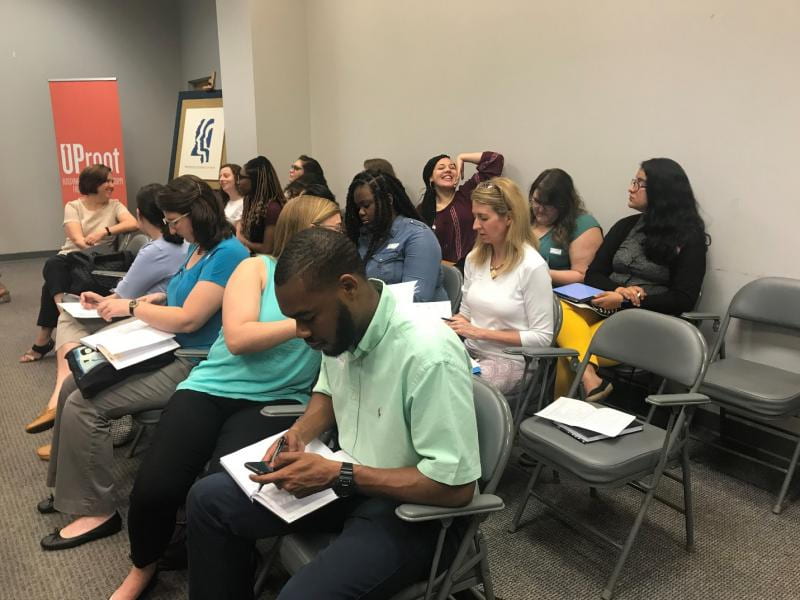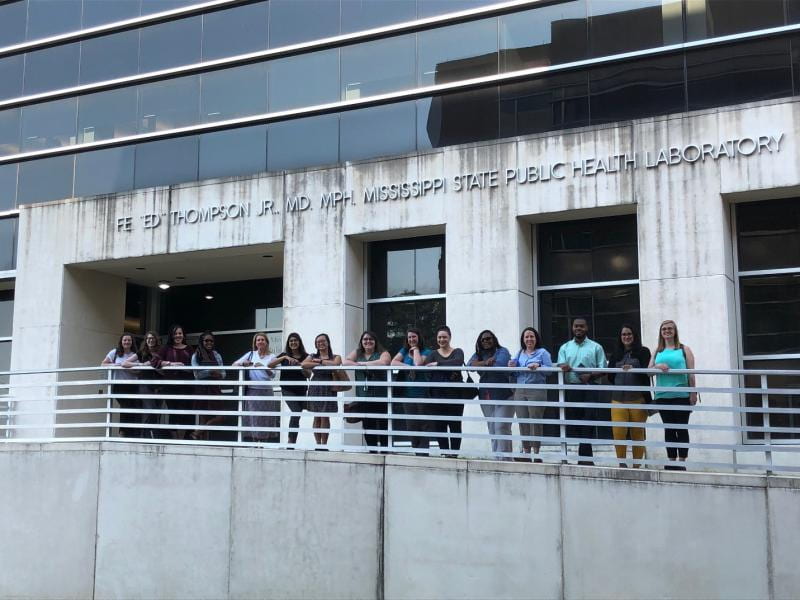“What keeps you coming in?” Dr. Lisa McCormick asked the room of officials and directors at the Mississippi State Department of Health (MSDH). We, the students, fell silent, leaning in to understand why. Why continue fighting against health disparities in Mississippi? Why continue fighting against the conflicting values of culture and politics and religion and community? Why keep taking on additional roles amid an ever-shrinking budget? Why?
“We want to make a difference for the folks in Mississippi,” said Kathy G. Burk, Director of Health Services.
“The need,” said Dr. Paul Byers, the State Epidemiologist. “The role we fill is unique.”
“The diversity,” said Meg Pearson, Pharm. D., Director of Public Health Pharmacy, referring to the group of people working together with different strengths and experiences towards the same goal of a healthier state.
Many youth and adults in the Bible Belt take trips around the world each year – mission trips with their churches or youth groups designed to create an experience for Americans to minister to people in different countries. However, the United States contains places and communities that are in just as desperate need of support and care as a developing nation. According to Mitchell Adcock, CPA, CIA, CFE, CPM and Chief Administrative Officer, this state is one of those places. You don’t have to look far to see poverty and suffering. The people of Mississippi are in great need of additional health services. And the people that were in the room before us on this Monday are tasked with planning, implementing, and evaluating programs to deliver these services.
The atmosphere in the room was heavy with equal parts humidity and the weight of the responsibility of improving public health in one of the states with the most drastic health disparities. Public health services are not valued by the public until there’s a disaster. Additionally, ongoing disparities don’t often affect the most powerful and influential politicians or their constituents. After a series of budget cuts and administrative reorganization, the MSDH is trying to spread their resources over competing demands, including maternal and child healthcare, disaster preparedness, preventing and treating HIV infections, preventing and treating tuberculosis, and providing education to promote healthier behaviors.
While accomplishing this, officials must sashay through bureaucratic red tape, pirouette around cultural barriers, and glide in step with community organizations. Toes get stepped on. Sometimes they stumble. But fighting against the powers that be won’t create better health outcomes. And so they dance, working with partners in federal, state, and local government, places of worship, non-profits, community leaders, and rural areas. Their mission doesn’t belong to a political party or affiliation. All they want is for the people of Mississippi to thrive and prosper in health and well-being.
The social, environmental, and economic factors that influence both individual and population health outcomes (social determinants of health) for Mississippi residents are many. In the shadow of the Antebellum South, Jim Crow law, and systemic racism, Mississippi has the highest percentage of black residents than any other state in our nation. While schools teach abstinence as the only method of sexual education, teen pregnancy rates soar. While communities enjoy cultural southern delicacies, Type 2 Diabetes, and Hypertension claim lives. While stigma effects those living with HIV, rates of new infections in Jackson, MS rival those of underdeveloped nations. Competing values clash, and the most vulnerable residents are left in the wake.
To address health, the MSDH can’t merely address prevention and disease treatment. Instead, they must waltz with Washington, cha-cha with community non-profits, tango with hospital systems, foxtrot with public education, and tap dance with religious organizations. They wake up and put on their figurative dancing shoes daily on behalf of Mississippians.
We left the building with a newfound appreciation of the complexity and balance required for statewide public health practice. It’s certainly not an easy task but a worthwhile and necessary one. While Mississippi has a long way to go to reach health equity, it has a team of dedicated and passionate professionals fighting or dancing in its corner.
Team C³ – Claire, Courtney, and Catherine



